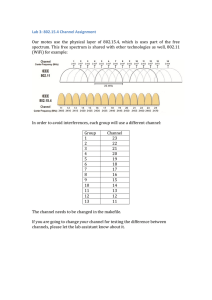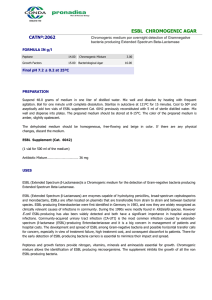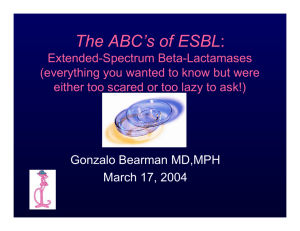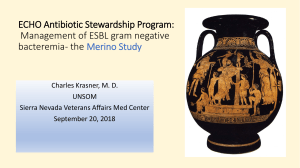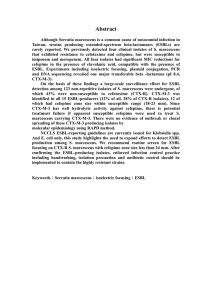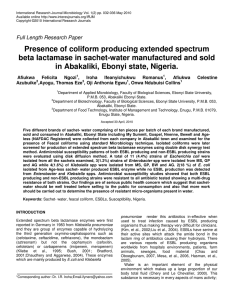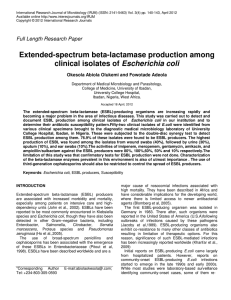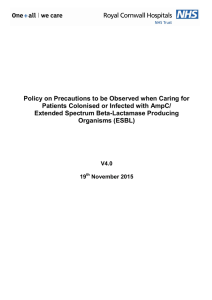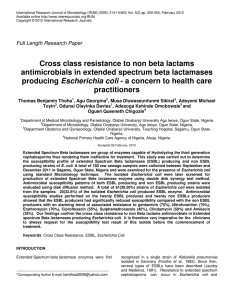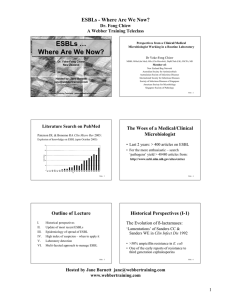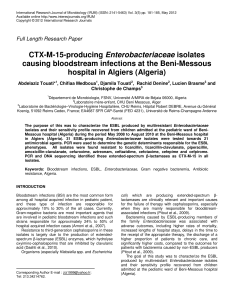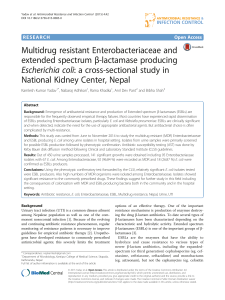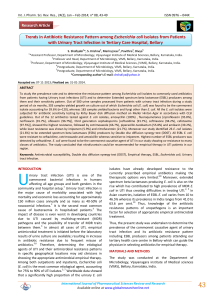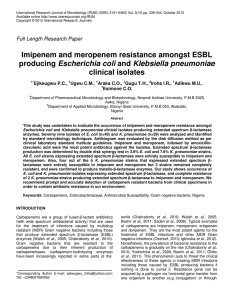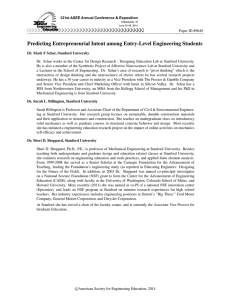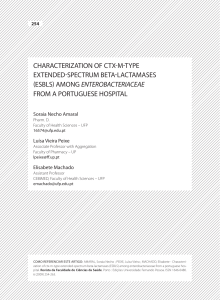UNIVERSITY OF MALTA
advertisement
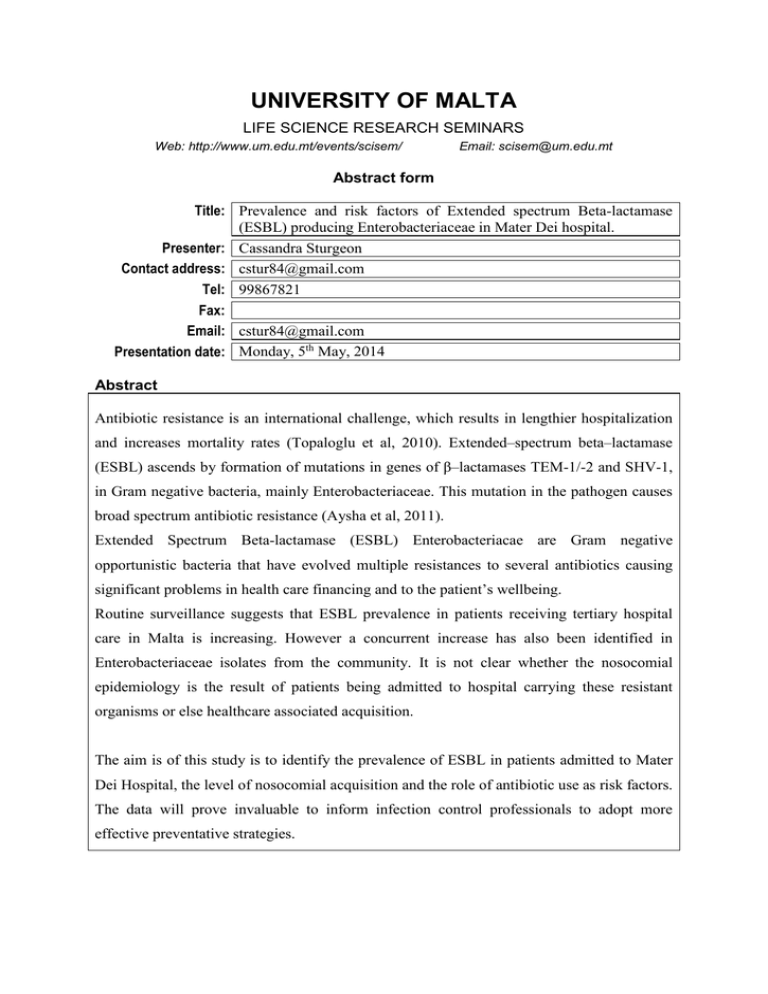
UNIVERSITY OF MALTA LIFE SCIENCE RESEARCH SEMINARS Web: http://www.um.edu.mt/events/scisem/ Email: scisem@um.edu.mt Abstract form Title: Prevalence and risk factors of Extended spectrum Beta-lactamase (ESBL) producing Enterobacteriaceae in Mater Dei hospital. Presenter: Cassandra Sturgeon Contact address: cstur84@gmail.com Tel: 99867821 Fax: Email: cstur84@gmail.com Presentation date: Monday, 5th May, 2014 Abstract Antibiotic resistance is an international challenge, which results in lengthier hospitalization and increases mortality rates (Topaloglu et al, 2010). Extended–spectrum beta–lactamase (ESBL) ascends by formation of mutations in genes of β–lactamases TEM-1/-2 and SHV-1, in Gram negative bacteria, mainly Enterobacteriaceae. This mutation in the pathogen causes broad spectrum antibiotic resistance (Aysha et al, 2011). Extended Spectrum Beta-lactamase (ESBL) Enterobacteriacae are Gram negative opportunistic bacteria that have evolved multiple resistances to several antibiotics causing significant problems in health care financing and to the patient’s wellbeing. Routine surveillance suggests that ESBL prevalence in patients receiving tertiary hospital care in Malta is increasing. However a concurrent increase has also been identified in Enterobacteriaceae isolates from the community. It is not clear whether the nosocomial epidemiology is the result of patients being admitted to hospital carrying these resistant organisms or else healthcare associated acquisition. The aim is of this study is to identify the prevalence of ESBL in patients admitted to Mater Dei Hospital, the level of nosocomial acquisition and the role of antibiotic use as risk factors. The data will prove invaluable to inform infection control professionals to adopt more effective preventative strategies.
